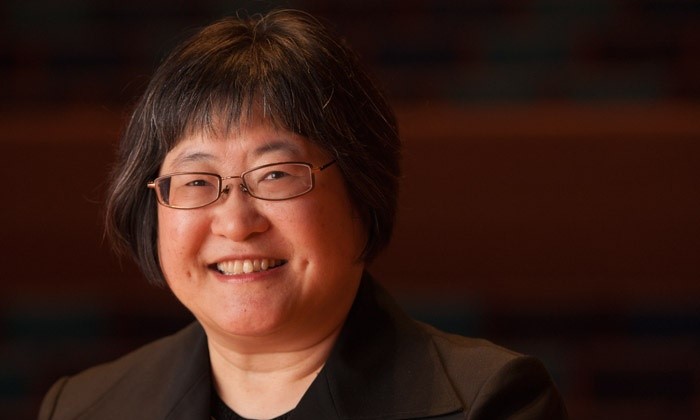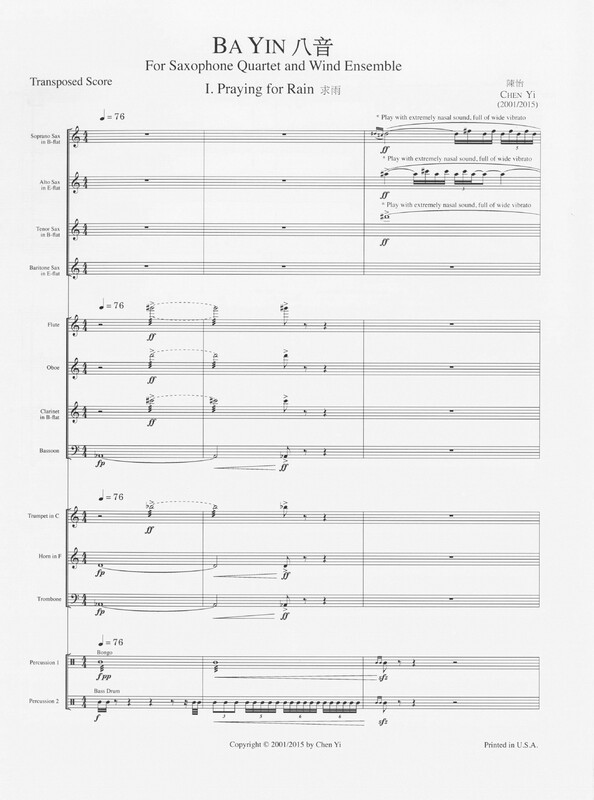Ba Yin (The Eight Sounds)
Item
-
Score title
-
Ba Yin (The Eight Sounds)
-
Composer
-
Chen Yi
-
Program note
-
Commissioned by the Stuttgart Chamber Orchestra, the 3-movement concerto is written for and premiered by the Rascher Saxophone Quartet and the Stuttgart Chamber Orchestra on Oct. 27, 2001 in Stuttgart, Germany and recorded on Bis [CD 1821] (released in Nov. 2011). I have adapted the work for saxophone quartet (SATB) and wind ensemble, which includes flute, oboe, clarinet, bassoon, French horn, trumpet, trombone, and 2 percussionists (I. vibraphone, bongo, Japanese high woodblock, and 4 tom-toms; II. marimba, glockenspiel, cymbal, 2 small Chinese Opera gongs, and bass drum), for Prism Quartet and UMKC Wind Symphony to premier on Oct. 4, 2015, directed by Prof. Steven Davis, at Helzberg Hall of Kauffman Center for the Performing Arts in Kansas City, Missouri.
In ancient China, the music was played with eight kinds of instruments made of or with metal, stone, silk, bamboo, gourd, clay, leather and wood. It was then called "The Eight Sounds" (Ba Yin). In my concerto Ba Yin, I use a saxophone quartet and a chamber wind ensemble to recall my impression of what I have heard in China, the music played by villagers on old traditional instruments in various ensembles.
The first movement is entitled Praying for Rain. It's inspired by the music played in the ritual ceremony, featuring blowing instruments suona (shawn, made with wood) and sheng (free-reed mouth-organ, made with gourd). The music is from slow to fast. The wind ensemble provides sheng-like sustained chords in the background while the quartet plays in heterophonic style imitating the tunes played by a group of suona players.
The second movement is called Song of the Chu (name of a country in Zhou Dynasty, located in the middle of China). It's influenced by a traditional Chinese instrumental solo piece with the same title, featuring the sound of xun (blowing instrument, made from clay). The quartet and the wind ensemble imitate a group of xun with crying sound, and the harmony of metal bells and stone chimes.
Shifan Gong-and-drum, the title of the third movement, is taken from the name of the ensembles of "silk-and-bamboo with gong-and-drum" in the Southeast. Shifan (literally 'Ten times') means 'multiple variation'. 'Silk-and-bamboo' refers to stringed and wind instruments. When the quartet plays the melodic textures, the wind ensemble imitates a whole group of percussion instruments. The music is brought to a climax at the end of the concerto. The work is about 20 minutes long.
 Chen Yi
Chen Yi

